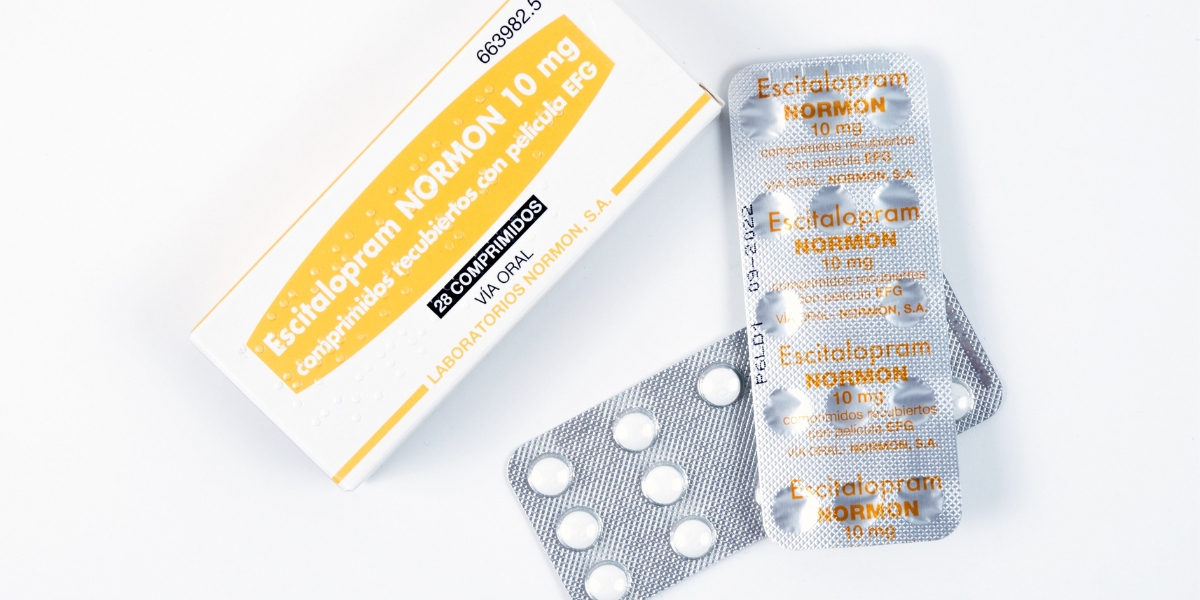Is Lexapro Addictive?

Lexapro is not physically addictive, but many people develop a psychological addiction. Most people struggling with addiction also suffer from mental health problems, and often the two conditions feed off each other and worsen.
Escitalopram, Lexapro’s generic name, is one of the most commonly prescribed antidepressants to treat depression and many of the most common mental health problems that may contribute to addiction.
Some people taking Lexapro felt that it helped reduce their alcohol cravings. Unfortunately, people with substance use disorders who suddenly feel better can associate that feeling with Lexapro and believe that if they feel good with what they’re currently taking, they can feel even better by taking more.
Lexapro doesn’t give an instant or physical high like some other drugs, but once a person crosses the line into abusing it, the cycle of addiction has already begun.
What Is Lexapro?
Lexapro is a selective serotonin reuptake inhibitor (SSRI). This SSRI antidepressant balances the chemicals in the brain to reduce the symptoms of depression and anxiety or other mental health problems caused by low serotonin levels in the brain.
Some of the conditions that respond favorably to Lexapro (escitalopram) include:
- Obsessive-compulsive disorder (OCD)
- Major depressive disorder
- Generalized anxiety disorder (GAD)
- Panic disorders
- Posttraumatic stress disorder (PTSD)
- Premenstrual dysphoric disorder (PMDD)
- Agoraphobia
- Social anxiety disorder
What Does Lexapro Look Like?
Lexapro is a round, white oral tablet in 5, 10, or 20mg doses. Each pill will have an imprint of the dose number on the back.
In the United States, Lexapro requires a prescription but is not a controlled substance, despite causing withdrawal. Antidepressant abuse causes psychological addiction, a lesser-studied area than drugs which cause immediate physical dependence and addiction. However, developing an antidepressant addiction is a documented phenomenon that meets the substance use disorder diagnostic criteria.
How Does Lexapro Work?
Lexapro works by helping your brain and body use its serotonin more efficiently by circulating in the system longer.
Serotonin is a naturally produced neurotransmitter that influences mood regulation, motivation, attention span, the digestive process, body temperature, blood flow, and many other essential functions. When serotonin production is interrupted, either because of biological factors or outside factors like drugs and alcohol, it causes severe shifts in moods and all the corresponding behaviors.
Lexapro prevents serotonin from being prematurely absorbed and guides it to where it needs to go. Imagine serotonin is a car; Lexapro ensures it gets off at the right exit to reach its destination. When serotonin binds to the intended receptor, the brain recognizes and uses it to elevate moods and improve functioning.
What Does Lexapro Do to Your Brain?
Lexapro alters how your brain responds to serotonin and utilizes and processes it. In a perfectly working and balanced brain, serotonin finds and binds to the correct receptors until it has served its purpose, then gets reabsorbed into the system. In people experiencing mental health problems, serotonin gets reabsorbed into the system before reaching the correct destination, causing a deficit of essential chemical reactions in the brain.
Lexapro Immediate Effects
Lexapro does not have immediate effects in the same way that narcotics do. Lexapro has to accumulate in the brain to be effective, which can happen as quickly as 72 hours or as long as four weeks, depending on the person taking it and the dose.
Once Lexapro reaches workable levels in the system, some of the effects of Lexapro include:
- Increased energy levels
- Memory improvements
- Longer attention span and ability to focus
- Stabilized sleeping patterns
- Improved appetite
- Reduced depression and anxiety symptoms

What Lexapro does have in common with more addictive narcotics is that people develop a tolerance, leading to a plateau or people feeling stable but like they are at a standstill with their symptoms while taking the same dose.
Once people feel like Lexapro isn’t working as well for them, they may take it upon themselves to increase their doses or begin mixing alcohol with antidepressants to enhance the effects. Both behaviors are hallmarks of prescription drug abuse and addiction that can lead to dangerous side effects.
Side Effects
The side effects of Lexapro are the most prevalent when a person starts taking it or the dose increases; they will usually stop as the body adjusts.
Common side effects of Lexapro include:
- Nausea
- Headaches
- Dizziness
- Dry mouth
- Sweating
- Changes in body temperature
- Constipation
Long-term users have reported additional side effects, including weight gain and sexual dysfunction.
Side effects of Lexapro abuse may include:
- Memory issues
- Hallucinations
- Sleep disturbances
- Brain zaps, or a feeling of shock and tingling
- Anorgasmia, or the inability to become aroused or achieve orgasm
- Psychological addiction
- Serotonin syndrome
- Withdrawal symptoms when you attempt to quit
Lexapro Abuse and Serotonin Syndrome
As previously explained, Lexapro increases the amount of serotonin in the brain; dangerously high doses of Lexapro or taking other substances that release serotonin, like MDMA or Adderall, can cause a serious, sometimes life-threatening condition called serotonin syndrome. Serotonin syndrome is also a risk of drinking on antidepressants.
If you believe you or a loved one are experiencing dangerous side effects or serotonin syndrome, you should seek immediate medical attention.
Lexapro Withdrawal
A person who abruptly stops Lexapro will experience withdrawal symptoms. Even people who taper their doses under medical supervision will experience discontinuation syndrome or withdrawal symptoms caused by changing serotonin levels in the brain.
In addition to physical withdrawal symptoms, as the brain adjusts, patients will experience rebound phenomena, which is the return of the mental health symptoms Lexapro initially worked to reduce; sometimes, they return more intensely than before.
Lexapro withdrawal symptoms include:
- Headaches
- Nausea
- Vomiting
- Diarrhea
- Flu-like symptoms
- Chills
- Vertigo
- Motion sickness
- Dizziness
- Brain fog
- Confusion
- Brain zaps or feelings of electricity running through your limbs
- Anxiety
- Disturbing dreams
- Sleep disruption
- Panic attacks
- Depression
- Suicidal thoughts

Tapering may not be possible or safe for people abusing large doses of Lexapro, in which case supervised medical detox is the best option. However, Medical detox is only the first step. Comprehensive addiction treatment must be the next step in the recovery journey.
Lexapro Abuse and Addiction Treatment in Northridge, California
At Northridge Addiction Treatment Center, we understand that a healthy mind is essential to recover from a substance use disorder successfully. We work closely with our residents to make living without addiction possible.
We offer onsite medical detox with 24-hour medical care and support to ensure your safety during withdrawal. Once you settle into our private and comfortable residential facility, we use evidence-based treatments and empower you with the knowledge and skills to take charge of your mental health and manage your addiction triggers in healthy and constructive ways.
Our caring treatment specialists are eager to discuss your treatment options with you. Reach out today; the path to a meaningful recovery awaits you.
Find Meaningful Recovery
Our caring and compassionate specialists are eager to help you comfortably navigate this journey to recovery. Our individualized treatment plan, programs, and therapies may be a perfect match for you or your loved one. Let us assist you in living the happy life you deserve. It starts with a phone call.




